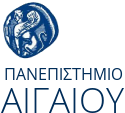Η παρούσα έρευνα έχει ως στόχο τη διερεύνηση του προφίλ Ελλήνων χρηστών λεξικού. Στην έρευνα συμμετείχαν 200 φοιτητές των Τμημάτων Ανθρωπιστικών σπουδών του Πανεπιστημίου Αιγαίου κατά το ακαδημαϊκό έτος 2015-2016, και για τη συλλογή των δεδομένων χρησιμοποιήθηκε το Strategy Inventory for Dictionary Use (Gavriilidou, 2013).
Τα δεδομένα μας δείχνουν ότι γενικά υιοθετούν θετικές στρατηγικές όσον αφορά την επιλογή του λεξικού: συχνά γνωρίζουν καλά τις ανάγκες τους πριν αγοράσουν ένα λεξικό και πριν χρησιμοποιήσουν τα λεξικά τους, ενώ πραγματοποιούν και πολλές δοκιμαστικές αναζητήσεις. Σπάνια δε κριτήριο επιλογής ενός λεξικού είναι ο αριθμός των σελίδων του ή η ύπαρξη εικόνων. Από την άλλη πλευρά, βρέθηκε ότι οι χρήστες αντιμετωπίζουν προβλήματα κατά την αναζήτηση στερεότυπων εκφράσεων, αν και γνωρίζουν ότι το να αναζητά κάποιος την πρώτη λέξη μιας στερεότυπης έκφρασης, δε συνιστά θετική στρατηγική. Τα ευρήματα αυτά ίσως δείχνουν ότι οι συμμετέχοντες μας στην περίπτωση των φράσεων αντιμετωπίζουν ιδιαίτερα προβλήματα όσον αφορά τον εντοπισμό του λήμματος όπου δίνονται πληροφορίες για τη φράση που αναζητούν. Τέλος, οι χρήστες αναφέρθηκαν σε θετικές στρατηγικές αναζήτησης: σπάνια ή ποτέ δεν αναζητούν κύρια ονόματα στο κυρίως σώμα του λεξικού και σπάνια ή ποτέ, όταν ανοίγουν μια σελίδα όπου το αρχικό γράμμα των λημμάτων είναι το ίδιο με την λέξη την οποία ψάχνουν, διαβάζουν ένα ένα όλα τα λήμματα μέχρι να βρουν τη λέξη που αναζητούν. Επιπλέον, σπάνια ή ποτέ δεν περιορίζουν την αναζήτησή τους μόνο στην πρώτη σημασία μιας πολύσημης λέξης. Από την άλλη πλευρά, οι συμμετέχοντες φαίνεται να αγνοούν αποτελεσματικές στρατηγικές όπως η σωστή κατανομή του όγκου του λεξικού σε σχέση με τα αρχικά γράμματα των λέξεων, κάτι που έρευνες έχουν δείξει πως κάνει λιγότερο χρονοβόρα την αναζήτηση. Αυτό μπορεί να οφείλεται στο ότι μέχρι πρόσφατα οι συμμετέχοντες στην έρευνά μας δεν είχαν λάβει οποιαδήποτε διδασκαλία σχετικά με το πώς χρησιμοποιούμε ένα λεξικό. Έτσι, αναζητούν λέξεις χωρίς να εφαρμόζουν ιδιαίτερα κάποιες στρατηγικές.
Τα παραπάνω αποτελέσματα αναδεικνύουν σε σημαντικό βαθμό την ανάγκη παιδαγωγικών παρεμβάσεων με σκοπό την ανάπτυξη αποτελεσματικότερων στρατηγικών χρήσης του λεξικού από τους φοιτητές.
The aim of the present study was to determine the profile of Greek adult dictionary users. 200 students of the Humanitarian studies departments of the University of the Aegean, Greece of the academic year 2015-2016 were given a survey-questionnaire, the Strategy Inventory for Dictionary Use (Gavriilidou, 2013).
It was found that in general they adopt positive strategies for dictionary selection (they are very often aware of their needs before buying a dictionary, before using their dictionaries, they attempt several practice look up trials and they seldom or never buy a dictionary because of the number of its pages or because it includes images). However it was also found that during lemmatization dictionary users face problems with the look up of frozen expressions such as proverbs even though they know that looking up the first word of the unknown proverb is not a positive strategy. This finding may suggest that when they deal with phraseologies they have a handicap to select the entry under which the expression is treated. This result agrees with previous research of Elola, Rodríguez-García and Winfrey (2008) who studied the kinds of lexical items which are problematic for FL learners using online dictionaries and found that collocations and fixed expressions constitute an obstacle in dictionary look up. Finally, users reported positive look up strategies (they seldom or never look up a proper name in the main body of the dictionary, they seldom or never read one by one all the words until they find the word they need, if they open their dictionary in a page containing words beginning with the same letter as the word they wish to find, they seldom or never keep only the first meaning of a polysemous word). However they ignore effective strategies such as distributing the alphabet letters to the pages of dictionary, strategy which is found to minimize the time needed for looking up words. This is maybe due to the fact that, until recently, Greek dictionary users of our sample had never received dictionary use instruction, so they looked up words in a non-strategic way.
The above findings highlight the need for a pedagogical intervention concerning the teaching and development of more effective strategies for the use of dictionaries by the students.
 University of the Aegena
University of the Aegena
